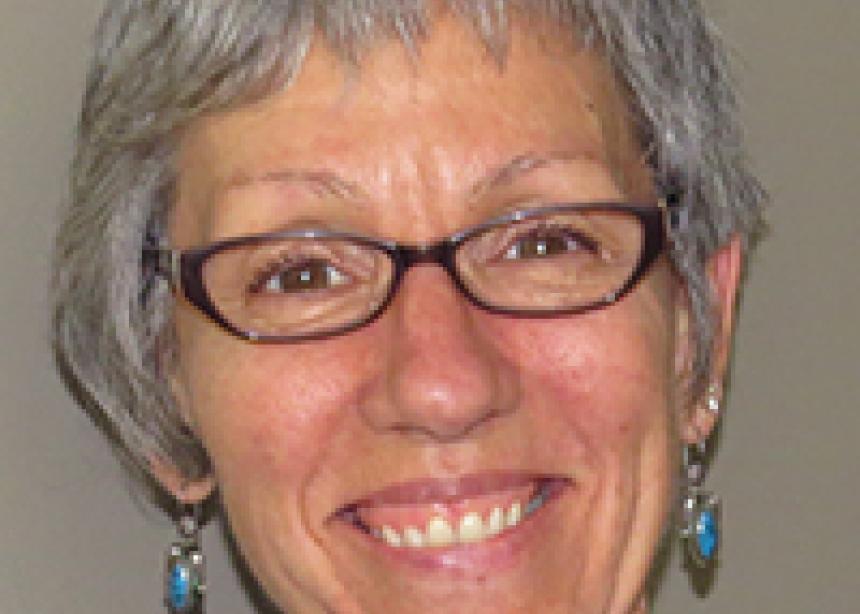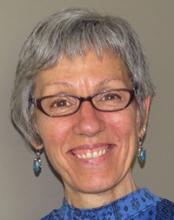Forty Mennonite Church Manitoba clergy attended the area church’s biennial “Healthy boundaries” seminar, held this year at Carman Mennonite Church. Led this spring by clinical psychologist Lois Edmund, the conference is mandatory once every four years for all credentialled MC Manitoba pastors.
Topics covered at the seminars include “Boundaries defined and their importance in ministry,” “Healthy congregations and healthy pastors,” “Strategies to reduce pastoral misconduct,” and “MC Manitoba policy on professional misconduct,” among others.
Moses Falco of Sterling Mennonite Church, Winnipeg, attended this year for the first time. Falco says he appreciated how the seminar framed boundaries as serving both congregations and pastors by protecting the interests and limitations of each. “It is vital for [the area church] to be proactive in educating us on topics like these,” he says. “As a young pastor in my first year of work, I am so thankful to be part of a larger church that values educating and resourcing their leaders.”
Tim Wenger of North Kildonan Mennonite Church, Winnipeg, also attended for the first time. He concurred with Falco, saying, “As a new, young pastor, I hadn’t realized how much trust people put in me. I didn’t realize I was in fiduciary relationships with everyone in my congregation. I look up to so many people in my congregation, not realizing that they also look up to and trust me to care for them and their children. The workshop gave me an appreciation [for that reality],” he says.
Wenger feels that public awareness of this seminar could be particularly important now, in the wake of recent church abuse crises worldwide: “It is important that people know we are proactive in learning about safe boundaries. Ministers have been in privileged positions for a long time. People have placed a lot of trust in us, and too many, including Mennonites, have betrayed this trust. As stories of abuse are revealed, the relationships between other pastors and congregants are eroded. Hopefully, by participating in workshops like these, we can demonstrate our commitment to care for our congregations and prove ourselves worthy of their trust.”
Ken Warkentin, MC Manitoba’s executive director, supports the seminar and brooks no argument about where the fault lies when things go wrong between church leaders and congregants. The burden of culpability, he says, lies with ministers. “A pastor cannot have an ‘affair.’ Because of the very nature of a minister’s position of power and trust, [misconduct] within [MC Manitoba] is always termed abuse.”
Warkentin says he considers ministry an “at-risk profession,” one in which boundary politics come into play. “Whatever a person’s reasons for joining the ministry, whether it be their own sense of need or calling, serving other’s needs, or whether they’re encouraged into it by their community recognizing personal charisma and gift, the reasons are rarely predatory. Still, pastors are vulnerable in different ways to make significant mistakes, and the intimacy of pastoral work can blindside a person. ”
Virginia Froese, Mennonite Central Committee (MCC) Manitoba’s abuse response and prevention program coordinator, agrees. “Pastors are involved in the most intimate places of people's lives, often during times of stress, struggle and great need, making them especially vulnerable to boundary violations,” she says. “Because of this, it is critical to equip pastors to have strong, healthy boundaries.”
Froese hopes that greater public knowledge of the “Healthy boundaries” seminar will “open the door for congregations to talk with their pastors, and other leaders or caregivers in their congregations, about ways to create healthy boundaries and prevent violation.”
MCC’s “Understanding Sexual Abuse by a Church Leader or Caregiver” resource is accessible online at mcc.org/media/resources/1136 or at any MCC office.




Add new comment
Canadian Mennonite invites comments and encourages constructive discussion about our content. Actual full names (first and last) are required. Comments are moderated and may be edited. They will not appear online until approved and will be posted during business hours. Some comments may be reproduced in print.